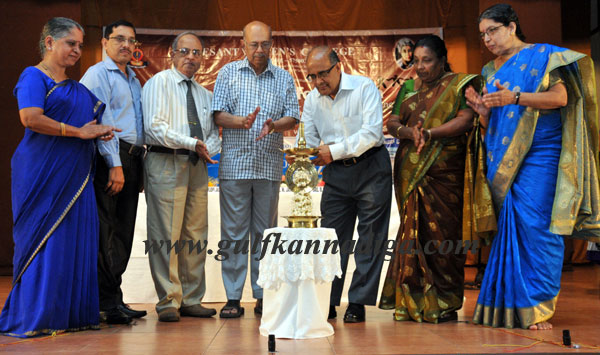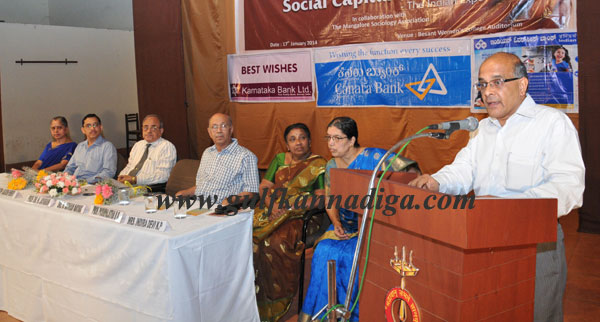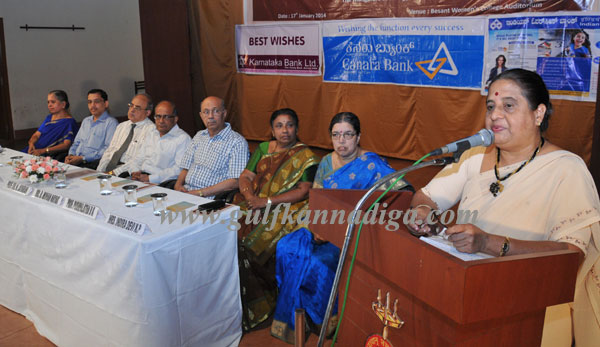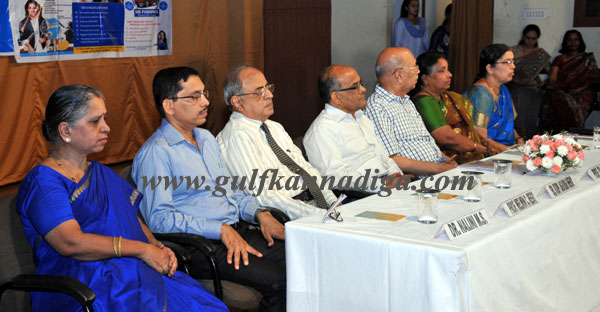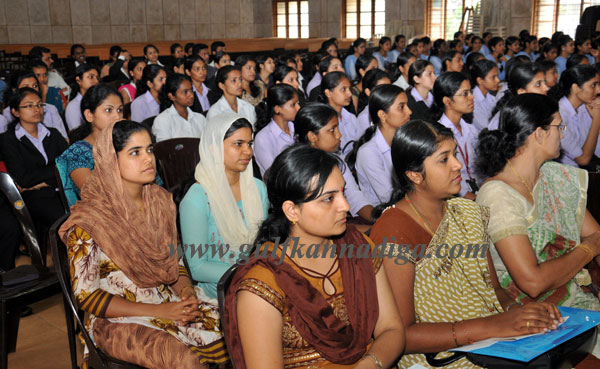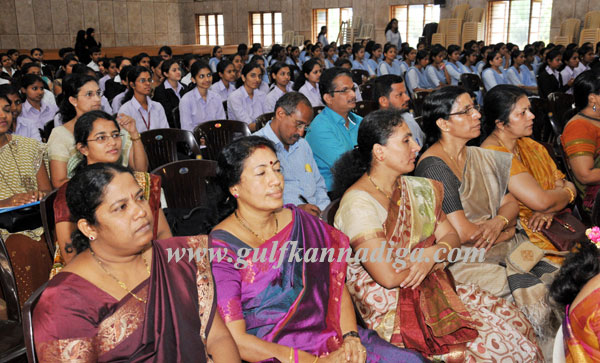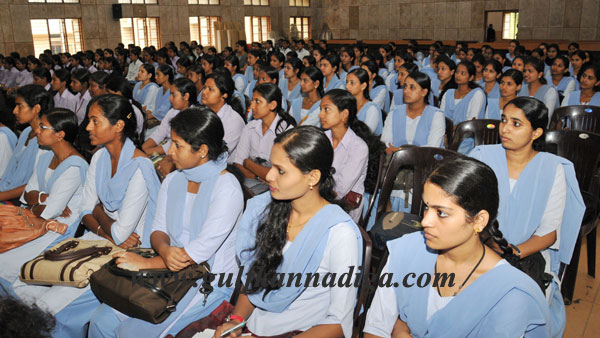Mangalore : A UGC Sponsored National Seminar on Social Capital Formation – The Indian Experience , organized by Department of Sociology and Economics in collaboration with ‘The Mangalore Sociology Association’ at Besant Women’s College today.
Prof. Dr. N Jayaram from ‘Centre for Research Methodology- Tata Institute of Social Sciences’, Mumbai, elaborated on the concept of Social Capital Formation in his Keynote Address.
He said, the term is as old as human beings themselves. But Social Capital as a concept was late in entering sociological analysis. The set of resources that inhere in family relations and in community, social organization and that are useful for the cognitive or social development of a child or young person is the basic social capital. He observed the social capital is not a single or homogenous entity; it is a conglomeration of diverse entities – trust, norms, networks, etc. Unlike financial capital, social capital is embedded in the structure of social relations: it is jointly owned by parties to a relationship; it is a communal property. Importantly, the stock of social capital increases through use; if not used, its stock gets depleted.
He said, with the processes of modernization and secularization, along with electoral democracy, the spread of liberal education, and the increasing information density, and information and communication technology, we are now experiencing the process of individuation of the person as never before the speedy dissemination of information among large mass of population spread across in a reality now. Physical barriers for communication among people have crumbled. Virtual communities have been formed through the use of Internet. There has been massive democratization of communication and access to information.
This point has implications for social capital, as it is unequally distributed in terms of groups and communities. In our quotidian life, who we are, as determined by our primordial groupings – be it caste, sect, religion, region, ethnic or linguistic community – is still very important. For this reason, in a country which is committed to secular values, social capital formation in the form of spread and strengthening of associations and institutions premised upon secular values is most important .Vigorous and communally integrated associations can serve as in agent of peace by restraining those, including politicians, who would polarize Hindus and Muslims along communal lines.“Active social capital formation and utilization calls for sound leadership or committed change agents” he opined.
He highlighted the importance of investing in women’s development in a predominantly patriarchal society like India, through education, socio-political empowerment and target- specific programme like self-help groups and micro-finance institutions, etc. In connection to this, he congratulated The Women’s National Education Society for its service in educating girls and women.
B.Mohan Nayak , Correspondent of the college speaking on the occasion said, the genuine concern and care we hold towards the people of the community and neighborhood can be one great way of harnessing social capital. It is an intangible resource which our social rituals like gifting money to the just married couple etc., highlighted our way of building and using social capital. He said the Indian culture has always supported the growth of social capital, and it surely has contributed to the economic growth.
Kudupi Jagadish Shenoy, President- Women’s’ National Society wished success to the seminar. Prof. Pushpalatha the Principal of the college welcomed earlier, Dr. Sulochana Narayan, Dept.of Political Science introduced the guests, the co coordinator Dr.Nalini.M.S, H.O.D- department of Sociology introduced the seminar topic. Prof. Indira Devi. K.P, H.O.D- department of Economics presented the vote of Thanks. Melwin Rego, Vice-President, ‘The Mangalore Sociology Association’ was present on the stage.

